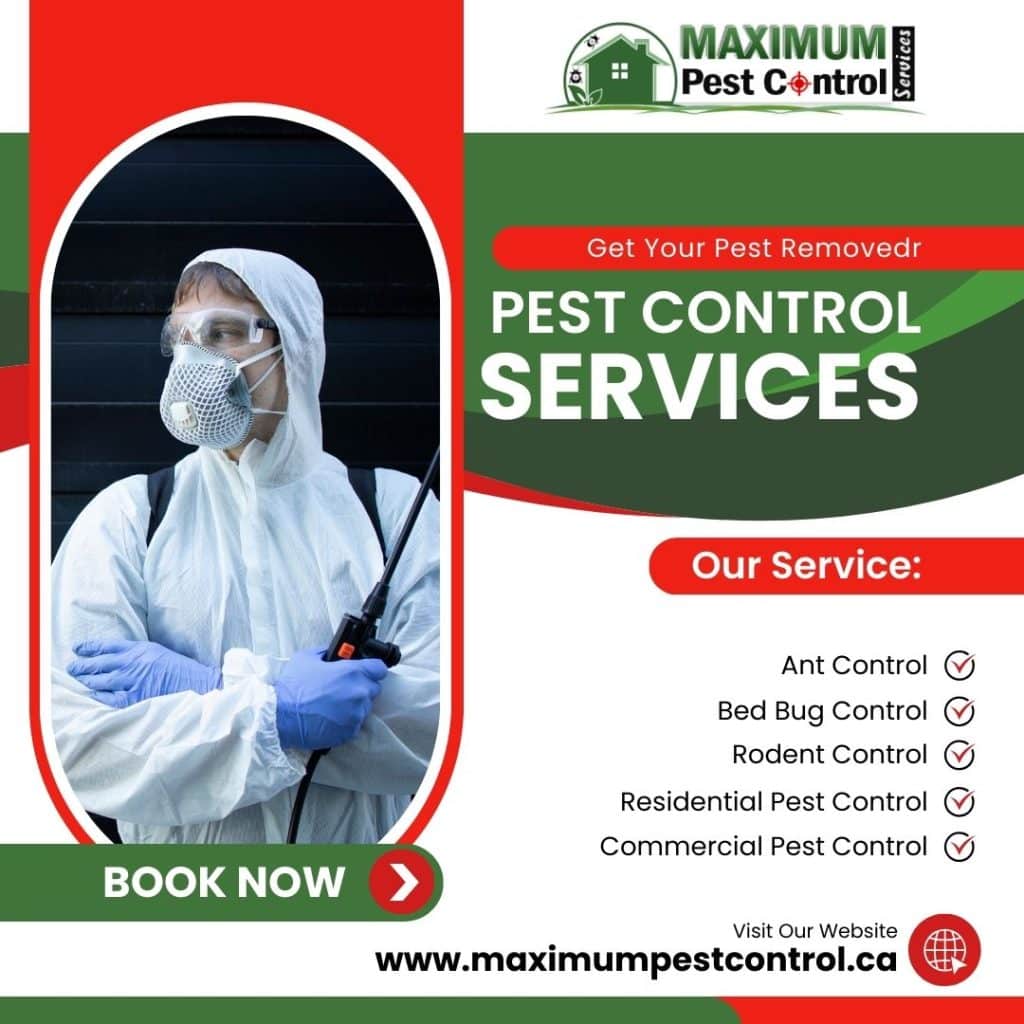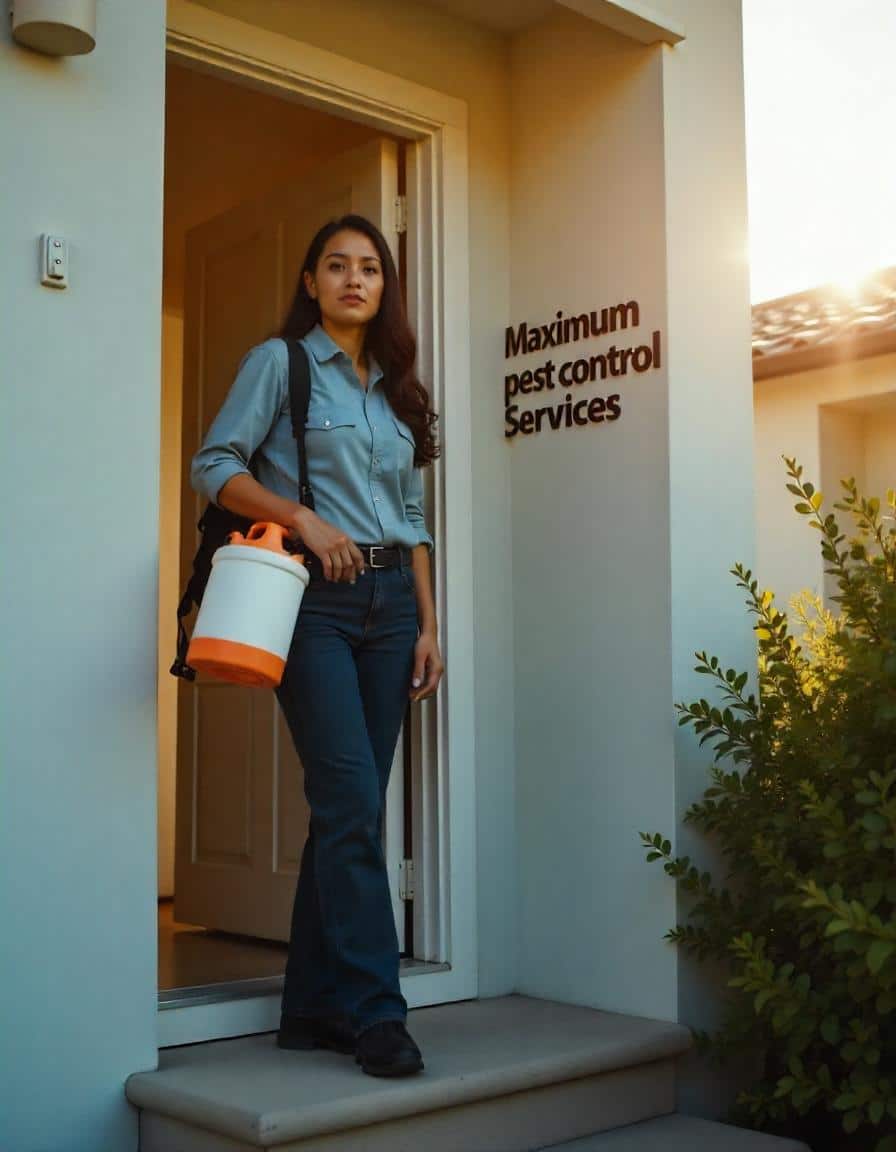
Signs Your Tenant Needs Help with Pest Control
Few issues in property management are as volatile as pest control. Tenants stress over the costs, invasion of privacy, and disruption, while landlords stress over property damage, health concerns, and general cleanliness. Yet proper communication can prevent misunderstandings and resentment on both sides.
In this article, we will discuss how to talk about pest control with tenants. You need to be straightforward, considerate, and not wordy. This will earn trust and cooperation, not war. Rarely do the great communicators have problems with their tenants, and tenants prefer clarity in rules, equity in policies, and expediency in solutions.
Keep reading to find out how to keep your property free of pests while continuing to have good relations with your tenants.
- Why Pest Control Matters to Everyone
Pest control is not just about killing bugs. It helps to protect health, comfort, and your financial investment. So many pests spread diseases and allergens. They can damage wiring, insulation, and wooden structures in your property. Over time, these issues become costly to fix.
When you and your tenants take on pests early, you save money and avoid hassles later. Tenants will have peace of mind knowing they are in a clean and healthy environment; you will have fewer emergency calls and repair bills. Stress levels also plummet because everyone understands the stakes involved.
Let the tenants know that you care about their well-being. They should be made to understand that you want them to be safe from pests and diseases. Remind them that pest control benefits everyone in the building. That sense of shared interest encourages them to cooperate.
- Set Expectations Right from the Start
Prevent headaches down the road by having a clear lease agreement. Include a section about pest control responsibilities. This part explains what you, as the landlord, will do. It also states what tenants should do to prevent or report pest problems.
You can give new tenants a short guide. That might detail best practices like sealing food properly, cleaning dishes, and removing trash often. It might mention reporting leaks or sudden insect sightings. When you provide this information early, tenants know their role before problems arise.
Tenants appreciate clarity, generally. They do not want ambiguity about their duties. They want to know who pays for what. A well-written lease spells everything out in plain language. You can then refer back to it when you talk with them. This approach precludes many disputes.
- Use a Collaborative, Empathetic Tone
Tenants will quite often get anxious when you mention pest control. They might worry about harmful chemicals or being blamed. Approach them with empathy and reassurance Express your understanding of their worries and acknowledge their feelings.
Try phrases like, “Pests attack in any home. Let’s work together to solve it. This creates a good vibe. It implies that you stand beside them, not against them. They will feel safer cooperating with you. That safety fosters honest communication, which is crucial when dealing with pests.
Be courteous in emails and in person. Pass along facts on how some pests are transmitted. Show that you have credible information. Then show how taking action quickly is in their best interest. Once you’ve proven you care, tenants will be more apt to take your prevention tips seriously.
- Pass Along Easy Actionable Prevention Tips
Prevention is the best form of pest control. Make it easy for tenants to follow best practices. Guide them on basic steps like storing food in sealed containers and wiping counters daily. Suggest that they fix or report minor leaks, since standing water attracts pests.
You can share a quick checklist with bullet points. This might include reminders about vacuuming rugs, sealing windows, and removing clutter. That helps tenants feel capable of preventing infestations themselves. They won’t view your advice as “nagging” if it sounds helpful and concise.
Renters should be urged to quickly report any issues comes up. A small mouse sighting or a couple of ants can grow into a major infestation. Reinforce that reporting helps you solve the problem early. Tenants want fast resolutions, too. When you present your tips in a friendly way, tenants often listen.
- Communicate About Scheduled Inspections and Treatments
Regular, scheduled pest inspections save costs and inconvenience all concerned. Quarterly or bi-monthly visits often stop problems before they spiral out of control. However, if not handled properly, such visits can make tenants uncomfortable with strangers in the homes.
Provide them with adequate notice—usually a minimum of one week—before such visits. Pass on to them the date, the time frame, and the treatments to be applied. If pest control professionals will apply chemicals, note any safety measures. Inquire about allergies or apprehensions so you are prepared to act proactively.
Never surprise tenants with last-minute inspections. Respect their schedules. Show them how each inspection aligns with your goal to keep the property pest-free. Such transparency eases tensions regarding privacy or safety. It also reflects your diligence as a property owner.
- Handle Emergencies Quickly and Openly
No matter how powerful your preventative measures, emergencies will still happen. You could have a sudden surge of cockroaches or an invasion of mice. Timing is everything in that situation. Act fast and assure the tenants that you are taking this seriously.
Share a course of action. State, for instance, that you have already called a professional. If you want them to prepare the unit, give them a checklist. Explain each step and the timeline for the resolution of the problem.
If you feel a tenant contributed to the infestation, gather your evidence first: photos, inspection reports, notes of repeated warnings. Present the facts and allow the tenant to have their say. Sometimes, tenants just did not recognize the risk. Work with the tenant to find an appropriate resolution that is reasonable for both of you. Never sound accusatory—address the issue at hand.
- Clarify Financial Responsibilities Early
“Who pays for pest control?” often sparks debates between landlords and tenants. Different states or regions handle this differently. Many local laws place the responsibility on landlords to keep units habitable. But if a tenant’s negligence caused the problem, they often bear some or all of the costs.
Have a specific clause in the lease. Outline what you are responsible for and what the tenant is responsible for. Some landlords cover regular treatments and only bill tenants if obvious neglect or misuse led to an infestation. Others bill tenants for regular maintenance. Review your local laws to make sure you are in compliance.
If you need to charge a tenant, prove it. You can refer to photos of trash piled up or show several warnings sent. Break down the charges. If money is limited, consider offering a payment plan. This shows empathy. It also motivates them to stay on top of preventative measures.
Many tenants worry about pesticide toxicity, especially if they have children or pets. Others worry about repeated treatments disrupting their lives. Some are afraid they will be blamed for infestations they didn’t create.
Address these concerns directly. Include links to or attachments of credible sources that explain contemporary, lower-toxicity methods. Describe how safe the treatments are when properly conducted. If you have green or Eco-friendly practices, say so. Reassure tenants they are free to ask questions or request further information.
Remind them that pest control is not punitive. It’s for the benefit of all. This message helps them to see pest control as an investment in their well-being. When they see that you are genuinely concerned, they are less likely to conceal problems. Timely reports from them help you to act fast before problems get worse.
- Work with Professional Pest Control Experts
DIY solutions have limitations. Sometimes, a professional touch will prevent bigger problems down the line. Professional pest control companies know common entry points, pest behaviours, and the best treatments for each situation. They also know relevant local laws.
Look for a licensed, reputable service. Vet them for quality, safety practices, and transparent communication. Inquire about their procedures and chemical usage. Request that they send you detailed reports after each visit. Those details can help you assure tenants who worry about toxins.
Professional involvement boosts confidence in tenants. They see that their home’s safety is being taken care of by trained technicians. This helps to quell anxieties about do-it-yourself attempts using harsh sprays or incomplete methods. A good pest control company can safeguard your property year-round through consistent relation.





